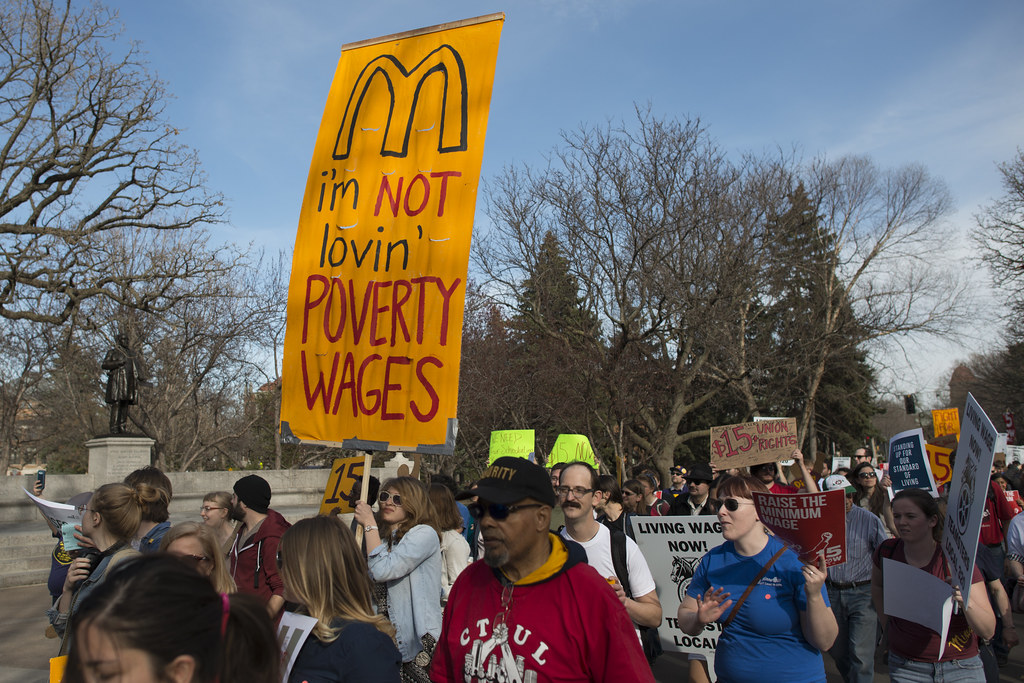California is making history by implementing one of the highest minimum wages in the country for fast-food workers, set at $20 an hour. This remarkable development, however, represents a compromise reached after intense negotiations between lawmakers, labor unions, and fast-food companies. The compromise aims to address longstanding issues within the industry while avoiding potential consequences that could have disrupted the fast-food business model.
The $20 Minimum Wage
Under the newly passed law, which takes effect in April 2024, fast-food workers in California will receive a minimum wage of $20 per hour, substantially higher than the state’s overall minimum wage, which will rise to $16 per hour in 2024. Moreover, the law includes provisions for annual adjustments tied to inflation, allowing wages to increase by up to 3.5% each year.
This wage increase is a significant victory for the more than 500,000 fast-food workers in the state. The move is seen as a step toward fairer wages, improved working conditions, and enhanced training opportunities. The new law also represents an essential change for an industry that has long faced criticism for its low wages and challenging work environments.
A Unique Sectoral Council
Beyond wage hikes, the legislation establishes a state-wide council, comprising representatives from fast-food workers, to advise on industry reforms. This council is viewed as a game-changer, as it has the potential to address a range of issues plaguing the industry, including wage theft, sexual harassment, racial discrimination, and health and safety concerns.
While the council’s recommendations are advisory in nature, they mark a significant departure from the status quo and provide fast-food workers with a stronger voice and a seat at the table in shaping the industry’s future.
Compromises and Corporate Liability
The compromise reached in California was critical in securing the support of fast-food companies. One significant concession was the removal of a provision that would have held corporate parents legally liable for the actions of franchisees. This provision, if implemented, would have blurred the lines between franchisees and the parent corporations, potentially altering the franchise business model.
The compromise also balanced the interests of franchise owners, who often operate small businesses with tight margins. While franchisees will not be held liable for labor law compliance, their larger parent corporations will not bear this responsibility either.
Path to Victory
This hard-fought victory for California’s fast-food workers did not come without challenges. Fast-food corporations, including industry giants like McDonald’s, Chipotle, Burger King, and Starbucks, initially organized a ballot initiative to delay the law’s implementation, intending to put it to a referendum vote in November 2024. However, under sustained pressure from labor unions and changes to the state’s law governing ballot initiatives, the companies ultimately abandoned their referendum plans.
A Win for Workers and Labor Advocates
The victory in California is not only significant for fast-food workers in the state but also for labor unions and advocates nationwide. The law, known as Assembly Bill (AB) 257, presents a unique opportunity to test a new model of sectoral bargaining and standard-setting.
The sectoral council formed as a result of AB 257 will consist of representatives from labor and employers, including franchise owners, fast-food corporations, and unions. It will address issues beyond wages, such as workplace health and safety, and grant workers the right to refuse unsafe work.
Limitations and Future Prospects
While this law represents a significant step forward, some critics argue that it may have limitations. For instance, the success of the fast-food council will depend on the capacity and willingness of the state’s Department of Industrial Relations to enforce standards and penalize violations.
Moreover, although it provides substantial improvements for fast-food workers, it falls short of creating a fully sectoral bargaining model and has limited channels for worker and union involvement.
Nevertheless, the compromise reached in California reflects a meaningful achievement in the ongoing fight for workers’ rights and better conditions in the fast-food industry. Incremental reforms like this can serve as stepping stones for broader worker empowerment and improvements in labor standards.
As fast-food workers prepare for their wages to rise to $20 per hour, the world will be watching to see how this unique model unfolds and whether it paves the way for further changes in the industry, both in California and beyond.
